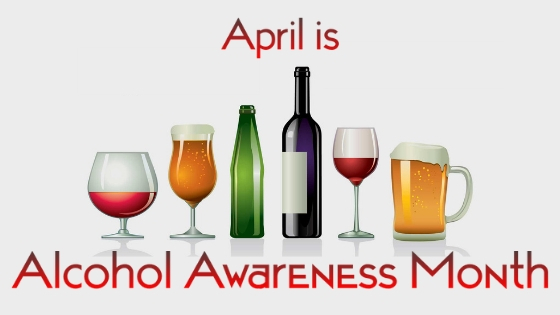April marks Alcohol Awareness Month, a time dedicated to educating individuals about the dangers of alcohol misuse and providing resources for those seeking recovery. Whether you are newly sober, maintaining long-term sobriety, or supporting a loved one on their journey, this month is an opportunity to reflect, learn, and strengthen your commitment to a sober lifestyle.
Understanding Alcohol Awareness Month
Established in 1987 by the National Council on Alcoholism and Drug Dependence (NCADD), Alcohol Awareness Month aims to reduce the stigma surrounding alcohol addiction and encourage communities to take proactive steps toward prevention and recovery. It serves as a reminder that alcoholism is a disease, not a moral failing, and that support and resources are available.
The Importance of Staying Sober
Sobriety is not just about abstaining from alcohol; it’s about reclaiming your life, building meaningful relationships and fostering mental and physical well-being. Alcohol can negatively impact every aspect of life, from health to finances to relationships. Staying sober allows for personal growth, stability and true fulfillment.
Strategies to Stay Sober
Maintaining sobriety requires dedication and practical strategies. Here are some keyways to strengthen your recovery:
1. Build a Strong Support System
• Surround yourself with people who encourage your sobriety, whether it’s family, friends, or a recovery community.
• Stay connected with a sponsor or mentor who understands your journey.
• Engage in sober activities that promote healthy relationships and personal growth.
2. Attend Meetings and Stay Active in Recovery
• Join support a group like Alcoholics Anonymous (AA)
• Participate in online or in-person meetings to stay accountable and share experiences.
• Consider leading discussions or sponsoring others to reinforce your commitment.
3. Develop Healthy Coping Mechanisms
• Practice mindfulness and meditation to manage stress and triggers.
• Engage in physical activities such as yoga, running, or weightlifting.
• Keep a journal to process emotions and track progress in sobriety.
4. Set Goals and Celebrate Milestones
• Establish short-term and long-term sobriety goals.
• Reward yourself with healthy activities like travel, new hobbies, or experiences.
• Acknowledge progress by celebrating milestones like 30, 90, or 365 days sober.
5. Avoid High-Risk Situations
• Stay away from environments where alcohol is the focus.
• Have a plan in place for social events, such as bringing a sober friend or having an exit strategy.
• Practice saying “no” confidently when offered a drink.
6. Seek Professional Help When Needed
• Therapy or counseling can provide additional tools for managing sobriety.
• Inpatient or outpatient rehab programs can offer structured support.
Spreading Awareness and Supporting Others
This Alcohol Awareness Month, take the opportunity to educate others about addiction and recovery. Share your story, participate in awareness campaigns, or volunteer at organizations that support sobriety. By breaking the stigma and offering support, we create a more understanding and compassionate world for those in recovery.
Final Thoughts
Sobriety is a lifelong journey, but with the right tools and support, it becomes a rewarding and fulfilling path. Whether you are celebrating one day, or many years sober, each moment without alcohol is a victory. This April, let us continue to raise awareness, support one another and embrace a healthier, alcohol-free life.
If you or someone you know is struggling with alcohol addiction, seek help from a professional or a recovery community. You are not alone, and there is hope for a brighter future.

